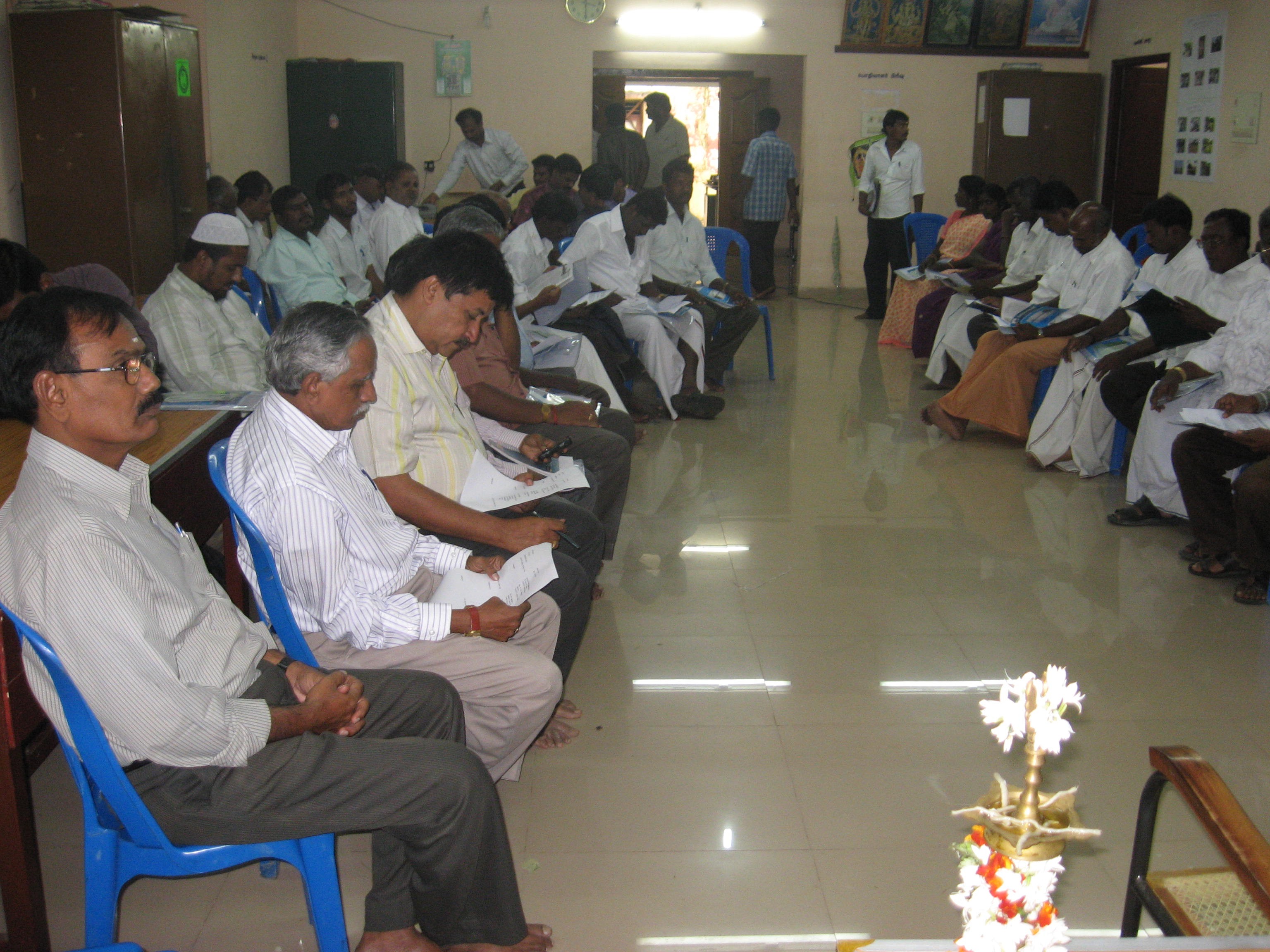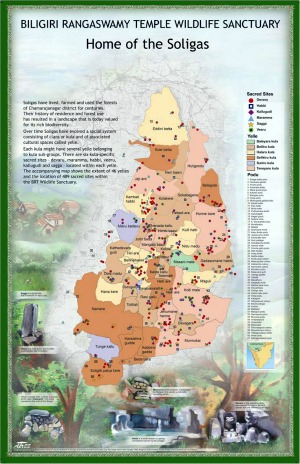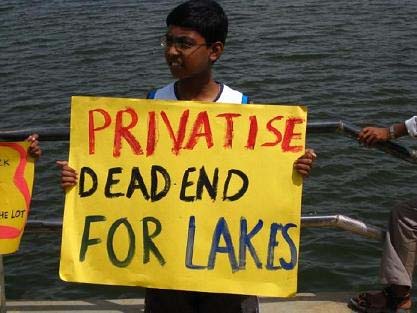/sub-categories/news-and-articles
News and Articles
Encephalitis deaths in India - The same story of poverty, neglect, disaster and disease, how long will this continue ?
Posted on 02 Dec, 2011 10:15 AMGuest post by : Aarti Kelkar-Khambete
Initiation workshop in November 2011 - Study on exploring strategies for increasing per capita availability of water in Gingee town (Tamil Nadu) - DHAN Foundation
Posted on 01 Dec, 2011 11:56 AMThis workshop organised by the DHAN Foundation in the Gingee Town Panchayat (GTP) in Tamil Nadu on the 18th of November 2011, aimed at initiating a scientific study titled “Strategy for increasing per capita availability of water for Gingee town, Tamilnadu". Elected representatives of the town panchayat along with the general public and government officials participated in this workshop.

Water quality hot-spots in rivers of India: Comments by South Asia Network on Dams, Rivers & People, New Delhi
Posted on 30 Nov, 2011 04:54 PMThe Central Water Commission (CWC) has recently prepared a report on water quality scenario of our rivers and has evolved a methodology for identifying hot spots in Indian rivers. The water quality data is based on the average values observed during the last ten years (2001-2011) at 371 monitoring stations of CWC on almost all major, medium and minor rivers in India. Please find below a letter (dated November 5, 2011) from South Asia Network on Dams, Rivers & People, New Delhi to the Chairman, Central Water Commission stating its concerns regarding the report.
Trouble in Tigerland: Why conservation efforts continue to fail
Posted on 30 Nov, 2011 11:53 AMGuest Post: Nitin Rai, Ashoka Trust for Research in Ecology and the Environment (ATREE)
Drawing upon his experience working with the Soligas who live within the Biligiri Rangaswamy Temple Wildlife Sanctuary, Nitin Rai talks about the ‘wilderness’ myth and explores the origins and impacts of the belief that people and animals cannot co-exist.

Karnataka High Court Committee strongly discourages commercial involvement in lake management and rejuvenation
Posted on 23 Nov, 2011 03:57 PMContent and photo courtesy: Environment Support Group
On the contentious policy relating to privatization of lakes, the Justice N K Patil Committee appointed by the Karnataka High Court has recommended that private sector participation solely based on commercial interest is not desirable.

In a significant development, the Committee appointed under the Chairmanship of Justice Mr. N. K. Patil, Judge of the Karnataka High Court and Chairman High Court Legal Services Committee, in response to the Public Interest Litigation by Environment Support Group challenging the privatisation of management and rehabilitation of lakes in Bangalore (WP 817/2008), has strongly recommended that ““private sector participation solely based on consequential commercial interest” is not a desirable model” (Emphasis in original).
Gravity based spring water supply systems in Andhra Pradesh: Lessons and steps towards the future
Posted on 22 Nov, 2011 07:35 AMGuest post by – Rahul Bakare, Arghyam
This article details an example where local knowledge has been used to develop access to safe water in the tribal areas of the Eastern Ghats in Andhra Pradesh
Northeast monsoon causes floods in parts of Tamil Nadu and Kerala, some snowfall in Kashmir: News Roundup (01 to 15 November 2011)
Posted on 22 Nov, 2011 07:26 AMThe news this fortnight has been dominated by the north-east monsoon in South India, mainly in Tamil Nadu and Kerala. Periyar, Vagai, Krishnarajasagar, Mettur and Chemberampakkam reservoirs have either reached full capacity or are expected to in the next few days. Areas downstream of Vagai reservoir received flood warnings.
In the cities of Tamil Nadu, heavy rains and inadequate infrastructure have led to damage to life and property, with 10 people dead in two separate incidents.
Winter precipitation has begun in Kashmir, with the higher reaches receiving snowfall.
Demonstration cum dissemination of the feasibility of KAF (Kanchan Arsenic Filter) in Assam - A workshop report - IGSSS and Welthungerhilfe (26th July 2011)
Posted on 21 Nov, 2011 10:26 AMThe workshop aimed at possible replication and acceptability of KAF as a viable, low cost appropriate arsenic mitigation measure in the arsenic contaminated regions of the country.
Creation of a village spring atlas for the conservation of Himalayan springs and adapting to climate change
Posted on 18 Nov, 2011 11:52 AMImage courtesy: http://sikkimsprings.org/
Living rivers, dying rivers: Rivers in North East India
Posted on 15 Nov, 2011 03:29 PMRivers in North-East India
